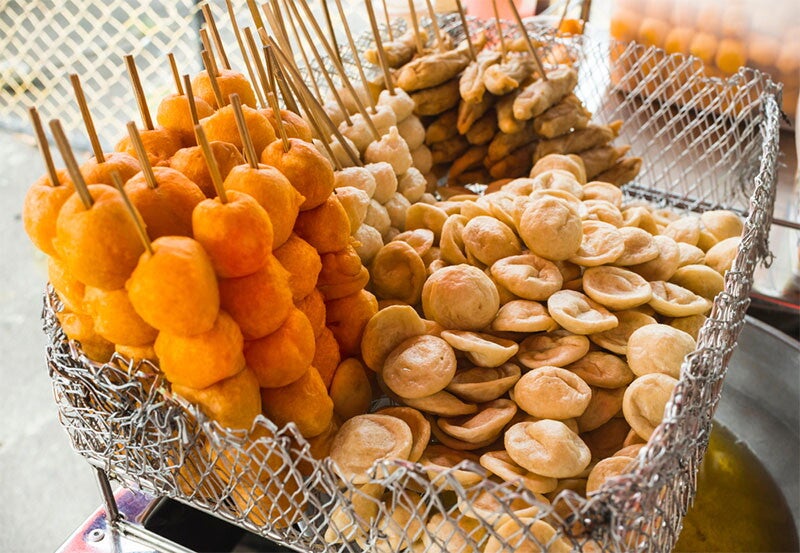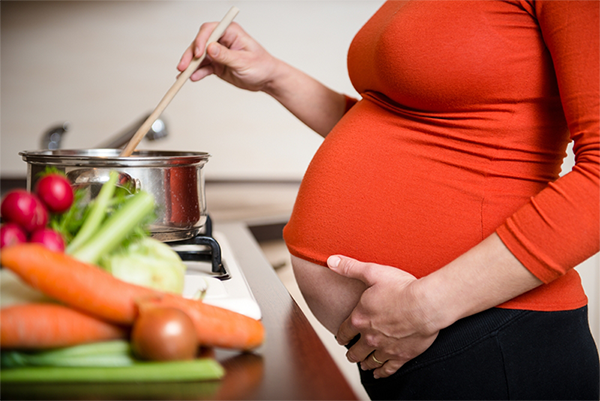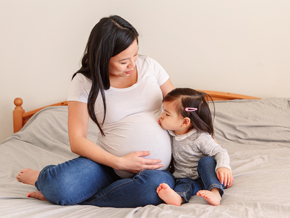
How to Satisfy Pregnancy Cravings—Without Risking Foodborne Illness
How many times have you wished for isaw at 2 a.m.? Or forced your partner to buy you chicharon after dinner? Giving in to your cravings is one of the most fun parts of the pregnancy experience. But while indulging can be satisfying, it’s also a time to be mindful of food safety and how it can affect you and your little one’s health. After all, when you’re pregnant, you’re more vulnerable to foodborne illness because of your lowered immunity.
Here’s the good news: a few smart swaps and safer food practices can go a long way. Here’s how to enjoy your food cravings safely:
What Is Foodborne Illness?
Foodborne illness—also known as food poisoning—is a stomach bug caused by eating food or drinking beverages that have been contaminated with bacteria, viruses, or parasites. It’s more common than you’d think: the World Health Organization says 1 in 10 people around the world get it each year. Symptoms can include nausea, vomiting, diarrhea, stomach cramps, and fever.
When you’re pregnant, your body is doing double duty. To support your baby, your immune system lowers its guard a little, which also makes it harder to fight off certain infections, including those from food. That’s why pregnant women are more at risk for foodborne illness.
And here in the Philippines, it’s even trickier during hot months. Food tends to spoil faster in the heat, which, according to the Philippine Society of Gastroenterology, is when foodborne illness cases tend to spike.
While most cases are mild and go away on their own, getting sick from food during pregnancy can sometimes lead to dehydration, preterm labor, or other complications. In fact, a study in the Philippine Journal of Science emphasized how undercooked and unsafe food prep can expose pregnant women to additional microbial risks.
But there’s no need to panic. Practicing these simple precautions can help you steer clear of the risks and still enjoy your favorite food.
Risky Pregnancy Cravings and Safer Options
We get it—that kamias fix might feel like the only thing that makes your partner less annoying. But you don’t have to completely deprive yourself. Heck, it’s one of the reasons that makes all weight gain worthwhile. So, here’s how to enjoy your cravings, without risking foodborne illness:
Street food

Craving street food while pregnant? Learn how to satisfy those pregnancy cravings safely with food safety and sanitation top of mind.
It doesn’t matter if you saw Manong cooking your fishball. You can never be sure how the street food is prepped and cooked. The oil might not be changed regularly or utensils not properly sanitized. Street meats may not be cooked all the way through, raising the risk of contamination.
Safer option: Prep and cook your favorite street food dishes at home or choose well-known restaurants that follow local food safety regulations.
Raw or undercooked seafood and eggs
Kinilaw, sushi, and even sunny-side-up eggs can harbor bacteria like Salmonella or Listeria. These bacteria can lead to infections that are harder to fight off during pregnancy and may affect your baby’s health if left untreated.
Safer option: Go for fish or meat dishes that are fully cooked. If you’re craving that asim from kinilaw, try satisfying it with a vinegar-rich dish like adobo instead. You can also jazz up your marinades with calamansi or suka for that citrusy kick—same flavor vibes, minus the risk.
Unpasteurized dairy products
While fresh carabao milk or homemade kesong puti might remind you of your Lola, unpasteurized dairy can harbor Listeria and other pathogens. Pasteurization is a simple process that kills harmful bacteria, so always check the label or ask how it’s made.
Safer option: Choose hard cheeses or pasteurized varieties instead of soft, raw-milk versions. But if you’re still hankering for carabao milk, look for the ice cream version or pastillas.
Cold deli meats or cut fruit
Cold cuts and ready-to-eat cut fruit stored in the fridge may still be risky. Listeria can survive and multiply even in cold environments.
Safer option: Heat your deli meats until steaming to make sure they’re safe to eat. For fruit, skip the pre-cut kind and slice it yourself at home so you can be sure it’s clean and fresh.
It’s better to be safe than sorry. But if you ever feel off after eating something questionable, don’t panic. Drink plenty of water, rest, and call your OB if you have a fever, diarrhea, or can’t keep fluids down.
Important Food Safety and Sanitation Tips to Remember

Cooking fresh veggies at home is a safe and nutritious way to curb pregnancy cravings.
Pregnancy cravings can strike any time (and often at the most inopportune times), so it helps to know how to snack safely. Here’s a list of simple tips that’ll keep you and your tummy healthy and happy:
1. Wash veggies and fruit thoroughly, even if you’re peeling them.
Bacteria can live on the surface of produce, and it’s easy for those germs to spread to your hands, knives, or cutting boards. A quick rinse under running water can go a long way.
2. Reheat leftovers until steaming hot.
Some bacteria, like Listeria, can survive in the fridge, so make sure your leftovers are heated through until piping hot. No quick microwaving here—give it enough time!
3. Avoid food that’s been sitting out for more than two hours
In the Philippines' hot and humid climate, bacteria grow super fast. If something’s been on the table a while, it’s better to toss it than risk it.
4. Keep your kitchen clean
Sanitize chopping boards, knives, counters, especially after prepping raw meat or seafood. Don’t forget to wash your hands regularly while you cook or prep snacks.
5. Always check expiration dates and storage instructions
Just because it looks okay doesn’t mean it is. Take a second to read the label before opening, eating, or reheating anything, especially dairy, meats, and sauces.
When you’re in doubt, please throw your food out. Trust your instincts. If it smells funny, has a different color or feels sticky (when it shouldn’t), don’t take the risk. Pregnant tummies are more sensitive, and it’s not worth the stress.
Pregnancy cravings are part of the fun, but being smart about them helps keep you and your baby healthy. Knowing what foodborne illness is and how to avoid it means you can still enjoy your favorite treats without worry. So go ahead, satisfy those cravings—just do it with a little extra care and a lot of love.
At the end of the day, food is joy, and there’s no reason it can’t be safe, too. If you’re curious about other moms’ experiences of foodborne illness from food, visit the ParenTeam Moms and Dads Facebook group for all things pregnancy and child-rearing!
References
Goyena, E. C., et al. (2023). Food and Nutrient Consumption Patterns of Filipino Pregnant and Lactating Women Based on a Nationwide Survey. Philippine Journal of Science, 152(5). https://philjournalsci.dost.gov.ph/images/pdf/pjs_pdf/vol152no5/food_and_nutrient_consumption_patterns_of_Filipino_pregnant_and_lactating_women_.pdf
World Health Organization. (2015). WHO’s first ever global estimates of foodborne diseases find children under 5 account for almost one third of deaths. https://www.who.int/news/item/03-12-2015-who-s-first-ever-global-estimates-of-foodborne-diseases-find-children-under-5-account-for-almost-one-third-of-deaths
Salibay, C. C., et al. (2014). Knowledge and practice on Toxoplasma infection in pregnant women from Malaysia, Philippines, and Thailand. Frontiers in Microbiology, 5, 291. https://www.frontiersin.org/articles/10.3389/fmicb.2014.00291/full
Philippine Society of Gastroenterology. (2023). GMA News: Gastroenteritis cases spike in summer due to spoiled food. https://www.gmanetwork.com/news/topstories/nation/938808/philippine-society-of-gastroenterology-gastroenteritis-summer/story/




























